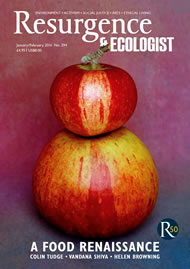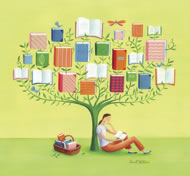ROWAN WILLIAMS
Larissa MacFarquhar’s Strangers Drowning: Voyages to the Brink of Moral Extremity (Allen Lane) is a lively and sympathetic study of an assortment of people who have made a very deliberate decision to give their lives as consistent a moral shape as they can, whatever the personal cost – and also of some of the arguments that in our society set out to undermine or invalidate such decisions.
‘Do-gooders’, as MacFarquhar says, are automatically suspect in many quarters, viewed not only as unrealistic but as in some respects self-deceived or unbalanced. Her vivid pictures of some dramatically self-sacrificing individuals do not gloss over the fact that they can often seem intimidating and unattractive, and that their moral consistency may exact a heavy toll in personal relationships. But her conclusion is that it is a serious mistake to belittle such figures, and that we badly need them as a standing challenge to the hypocritical and half-hearted way most of us engage with the moral issues around redistributing goods of all sorts. It is a disturbing book, but a necessary one, as the lives it sketches are disturbing and necessary.
NATALIE BENNETT
I found Here We Stand: Women Changing the World, edited by Helena Earnshaw and Angharad Penrhyn Jones (Honno Press), on the shortlist of the Bread and Roses book prize, which it went on to win. (Declaration of interest: I was one of the judges and was delighted it did.) In an age of rising activism and political engagement, best evidenced by 2015’s huge anti-austerity march in London and the massive gathering outside the Tory conference in Manchester, this is a reminder of those women who came before, who were fighting battles before many of today’s activists were born.
As a feminist I’ve always been aware of how often women slip away from the historical record, but this book ensures that many brave struggles have been recorded, by those who were on the front line. It’s of value to both those with historical interests, and those who want inspiration, ideas and tips for today’s many battles.
JONATHON PORRITT
I’m nominating a book that won’t have hit many people’s reading list as yet – in part because an awful lot of greenies remain either rather nervous or hostile to the whole spiritual shtick in the Green Movement, and in part because many people involved in spiritual and faith communities don’t see themselves as environmental activists – let alone Earth warriors! For me, this is more than a little crazy on both counts. As Alastair McIntosh and Matt Carmichael eloquently demonstrate in Spiritual Activism (Green Books), there’s such latent power in faith-based philosophies and practices, from an environmental perspective; yet it’s hard to imagine how people of faith do not feel called to play their part in transforming today’s deeply immoral, insanely destructive economy.
ROBERT MACFARLANE
I was amazed and entertained by Richard Mabey’s The Cabaret of Plants (Profile): written with a typically Mabeyish mixture of wit, knowledge and intellectual power, it shows how plants have consistently outsmarted our attempts to categorise them, and out-thought our attempts to understand them. As ever with Mabey’s work, it left me challenged and delighted – and seeing the world a little differently.
BILL McKIBBEN
In What We’re Fighting for Now Is Each Other: Dispatches from the Front Lines of Climate Justice (Beacon Press), Wen Stephenson, an essayist for The Nation and himself a fighter for climate action, profiles the emerging fossil-fuel resistance. He makes the very powerful point that this movement is not synonymous with the big environmental organisations, but instead is largely led by Indigenous people, dwellers in the communities most immediately affected by climate change, and others of good spirit. It’s a compelling story, and a good counterbalance to the stream of official NGO proclamations that will flow from the Paris climate talks.
CAROLINE LUCAS
In The Moth Snowstorm (John Murray), Michael McCarthy, one of the UK’s leading environmental writers, makes a compelling case for why joy should be at the centre of our efforts to protect our planet. His beautifully written book blends a new way of looking at our relationship with the world with the author’s own moving story charting his reasons for becoming fascinated with the natural environment.
Central to McCarthy’s thesis is that humans make a natural connection to our environment – and that, given the chance, all of us grow to love Nature. It’s a timely reminder of the importance of conserving local habitats – from parks to nature reserves – as part of a broader fight to protect our planet from environmental degradation.
CRAIG BENNETT
Sapiens: A Brief History of Humankind, by Yuval Noah Harari (Vintage), is a remarkable and ambitious book. It tells the story of humans, from the “cognitive revolution”, when the first hunter-gatherer societies first started to think in a way quite distinct from other animals, through to speculating where our species might be heading next as it continues to overrun environmental limits. My belief is that this is the century when, for the first time in its history, humanity will have to make a series of collective conscious decisions about our future direction of travel. That is exciting because this would represent a major new step in our history and our progress. To understand that, we need to understand our collective history. Harari’s book offers a gripping way of doing just that.
ADITYA CHAKRABORTTY
Full disclosure: Joris Luyendijk is a former colleague and remains a friend. Even so, my recommendation for his new book, Swimming with Sharks: My Journey into the World of the Bankers (Guardian Faber Publishing), is more than just (Yuletide) log-rolling. What you have here is a rare journey to the heart of Britain’s over-mighty, overpaid and often obscure finance sector. Yet the book holds off the easy outrage or the exposé. Instead, through dozens of extended interviews with the people who work there, it lays bare an entire industry, in which workers are paid vast sums to do work that is dull yet all-consuming, individually prosaic but collectively perverse, and ultimately dangerous. These are the same suits who nearly broke the world economy a few years ago and, Joris finds, there’s nothing to stop them doing the same all over again. Read this if you want to be terrified.
JAMES JONES
Rain, by Barney Campbell (Michael Joseph), may be a surprising choice for readers of Resurgence & Ecologist because it is all about war – the Afghan war. It’s a novel that traces the life of a young army officer from his comprehensive school through Sandhurst to the frontline in Afghanistan. It is vivid and at times violent but never trivial in its depiction of the human cost of taking up arms. It’s written by someone with first-hand experience of the frontline. It is harrowing. But what it does do is alert you to the full realities of the geopolitical struggles of today’s world and challenge naive solutions. As with all great novels, the human story of the young officer unfolds as he searches for his own identity through a range of relationships that reach into his soul.
IAIN McGILCHRIST
My book of the year is Plato’s Revenge: Politics in the Age of Ecology, by William Ophuls (The MIT Press). It should be mandatory reading for everyone with any influence and is a delight to read even though its drift is hardly comforting. It is a devastating critique of modern Western thinking – so good that I thought that there was no point in my writing another word, since it says it all.
JEREMY SEABROOK
Naomi Klein’s This Changes Everything (Simon & Schuster) places the issue of global warming firmly where it belongs: within an industrial paradigm that will not permit itself to be subordinated to a higher ecological imperative. Intense, persuasive, polemical, it is a sustained plea on behalf of human survival – a cause one might have thought unnecessary, but essential in the present climate, social as well as meteorological.
PETER AINSWORTH
Ladybird Books were 100 years old in 2015 and, to celebrate, they produced a fabulously illustrated book Ladybird by Design, by Lawrence Zeegen, to accompany a retrospective exhibition of their artwork. Some of the art now seems dated, which they have recognised by publishing a very funny series of joke editions, but it’s a reminder of cultural values that existed within most of our lifetimes and may remain surprisingly influential. After all, a lot of us first learned how to spell with help from Peter and Jane, and we found our first love of history and Nature through the pages of these always immaculately created books.
ADAM THORPE
I have very much enjoyed Dominick Tyler’s Uncommon Ground (Guardian Faber), a glossary of landscape-related words, mostly rare and some near-extinct. Each is accompanied by the author’s evocative photographs. Even if you know what a ‘nurse log’ is, or a ‘gryke’, or a ‘jackstraw’ (in a forest), or a ‘maoim’ (on the island of Lewis), this book will still delight with its revealing commentaries. I even learned something more about ‘moss’.








